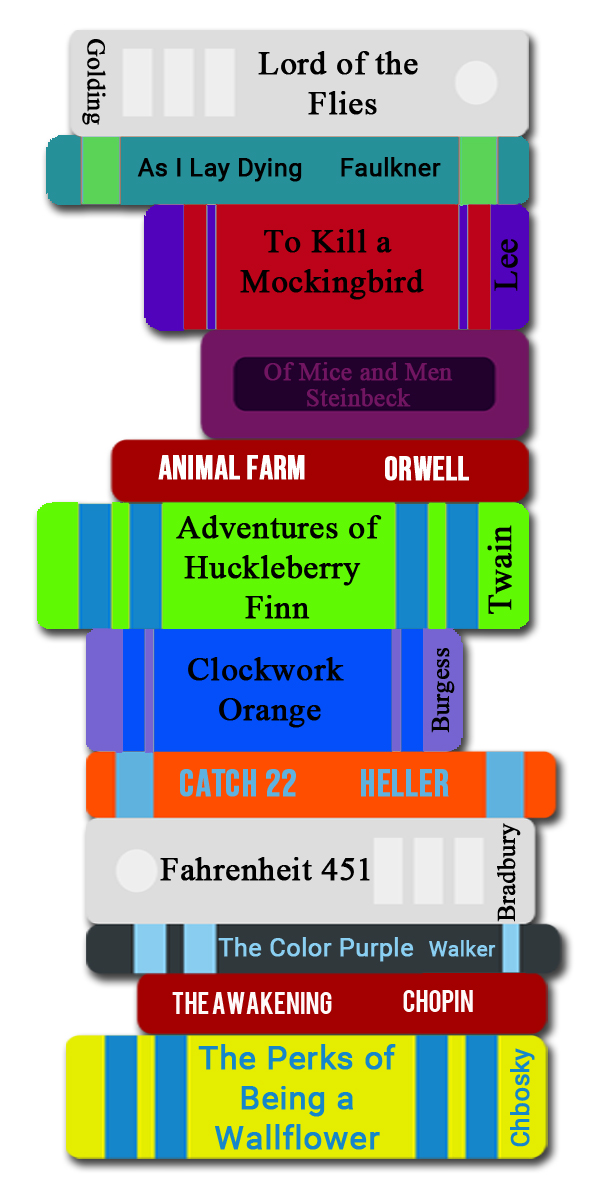By Alyson Peabody, News Editor
Two weeks ago, Republican lawmaker Amy Arata’s proposal to ban ‘obscene’ material in public schools was unanimously rejected by the legislative committee in Maine after a public hearing, according to the Beacon. The bill started when Arata opened her child’s copy of Kafka on the Shore, by Japanese author Haruki Murakami. Arata felt that some of the pages had graphic language and sexual violence, and proposed the bill to keep sensitive literature away from Maine kids.
The Sun Journal quotes her saying, “It’s not about banning books” and that the bill is to ensure that students are given age-appropriate materials to learn from.
Maine School Superintendents Association says that school boards already have policies in place to take care of complaints that parents have about their children reading ‘obscene’ material, according to WGME. Some consider the censorship proposal to be against First Amendment rights.
USM Associate Professor of Communications, Dr. Daniel Panici, teaches a course about the First Amendment. “It is a form of censorship,” Panici says, referring to Arata’s proposal, “but not all forms of censorship are a violation of first amendment rights.”
Panici said that there is more academic freedom for choosing course materials at the university level than for public elementary, middle and high schools that have course materials reviewed by a school board.
“The First Amendment doesn’t guarantee that a child reads a certain book in school,” Panici said. “Parents always have a right to say, ‘I don’t want my child to read this… I don’t think it’s appropriate,’ and then the teacher comes up with another assignment.”
Panici provided an excerpt from Thomas Tedford and Dale Herbeck’s book, Freedom of Speech in the United States outlining how to legally define obscenity. The stipulations of the 1973 Supreme Court decision for Miller v. California defined how local and state standards can evaluate whether or not material is ‘obscene.’ The rules are as follows:
- Whether “the average person, applying contemporary community standards” would find that the work, taken as a whole, appeals to the prurient interest.
- Whether the work depicts or describes, in a patently offensive way, sexual conduct specifically defined by the applicable state law.
- Whether the work, taken as a whole, lacks serious literary, artistic, political, or scientific value.
Maine’s obscenity statute states that books are considered to be obscene if the entirety of the work lacks literary, artistic, political or scientific value. The Sun Journal reports that Arata’s proposed law would remove this statute that makes books exempt from being banned by public schools.
“There are controversial issues that come up [in the classroom], but what a great place to deal with that in an environment where you can supposedly have teachers who can facilitate dialogue about something in that way,” Panici said.
Famous banned books in the United States:
-
- Animal Farm by George Orwell
- Adventures of Huckleberry Finn by Mark Twain
- As I Lay Dying by William Faulkner
- The Awakening by Kate Chopin
- Catch 22 by Joseph Heller
- Fahrenheit 451 by Ray Bradbury
- Clockwork Orange by Anthony Burgess
- Lord of the Flies by William Golding
- The Perks of Being a Wallflower by Stephen Chbosky
- To Kill a Mockingbird by Harper Lee
- Of Mice and Men by John Steinbeck
- The Color Purple by Alice Walker


1 thought on “Bill to censor ‘obscene’ literature rejected”